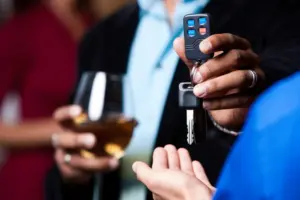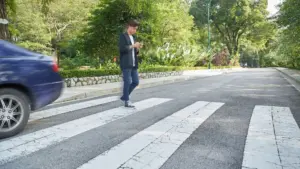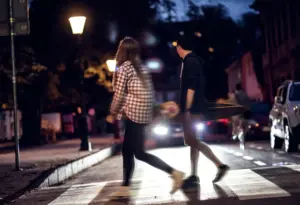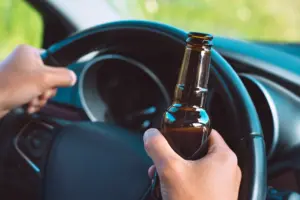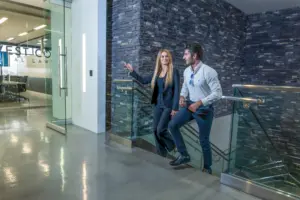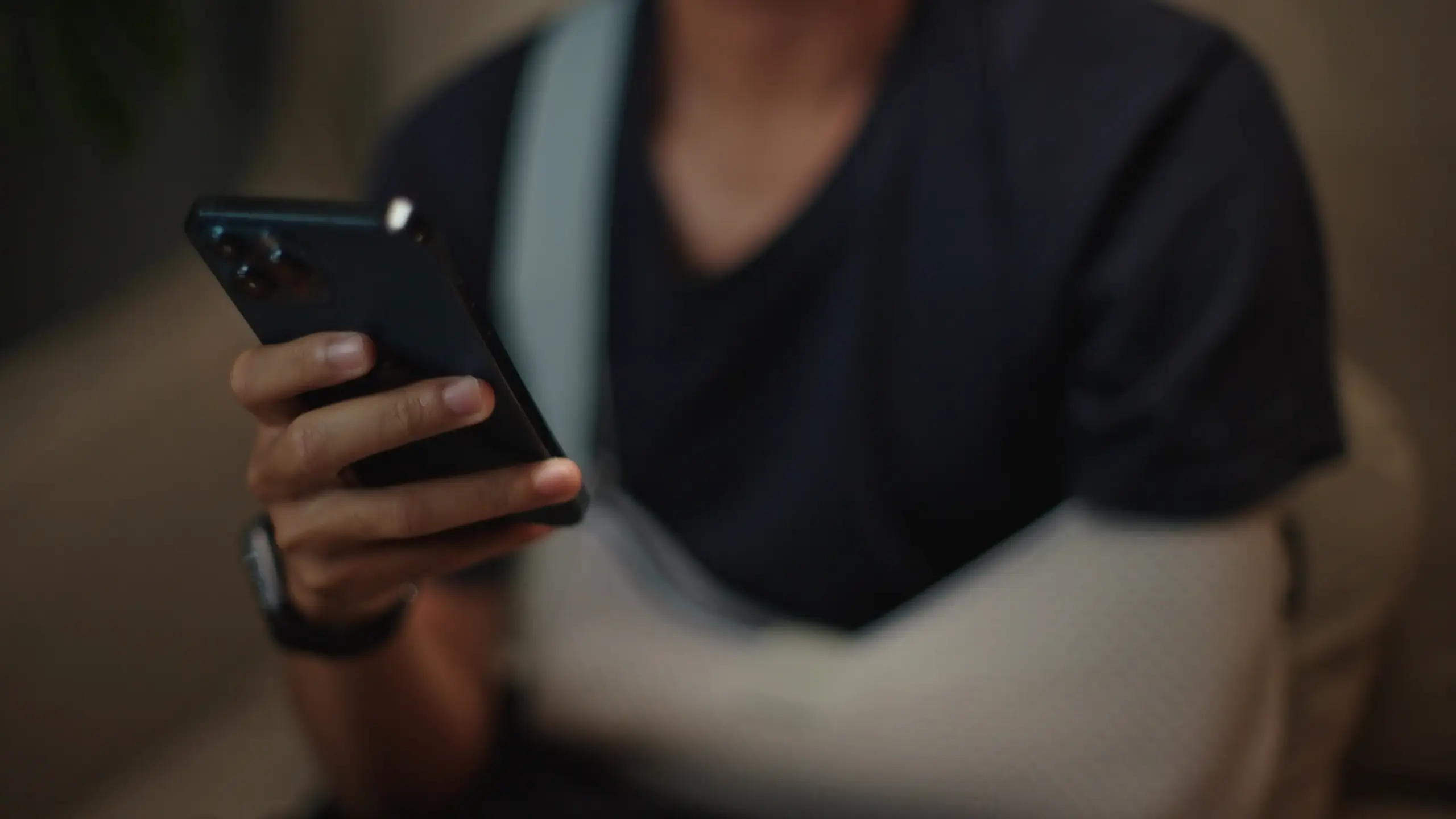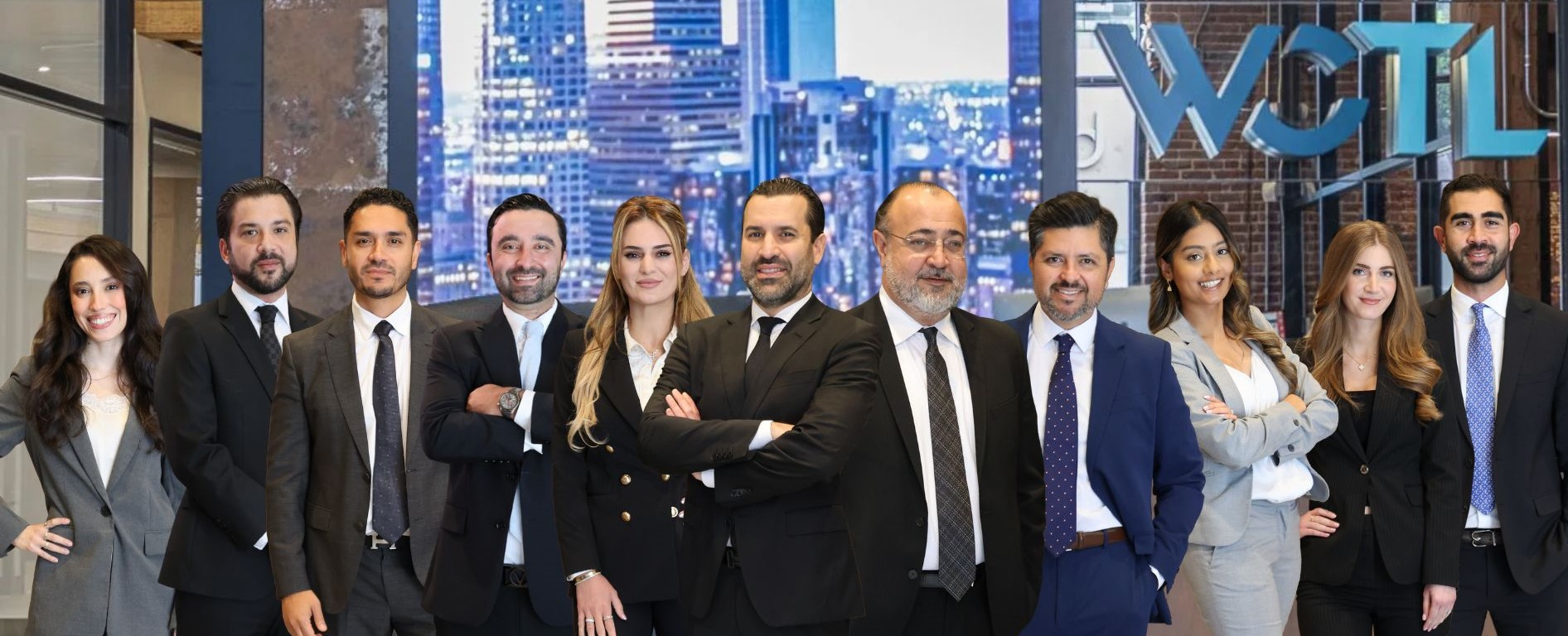If you’ve been hurt in a pedestrian accident, we know how hard it can be to juggle mounting medical bills, missed work, and the frustration of insurance claims—all while trying to heal physically and emotionally. At West Coast Trial Lawyers, our pedestrian accident lawyers truly understand how overwhelming this process can feel, and we’re here to help you every step of the way.
With over 20 years of experience and handling a variety of cases, our legal team understands the complexities found in pedestrian accidents and are confident that they can get you the compensation you deserve. As a result of our dedication and compassion, we have recovered over $1.7 billion in financial compensation for our deserving clients and we will continue to fight for people’s rights.
Don’t wait to get the help you need. Call (213) 927-3700 for a FREE consultation or fill out our online contact form to speak with our experienced personal injury attorneys. Your recovery, your future, and your peace of mind matter to us.
Why Choose WCTL for Your Case?
- Harvard-Educated Leadership
Our President, Neama Rahmani, is one of the youngest graduates in Harvard Law School’s history and a former federal prosecutor, bringing elite legal expertise to every case. - Available 24/7 – We Come to You
Unlike many firms, our legal team is ready to meet you wherever and whenever you need us — 24 hours a day, 7 days a week. - Trusted by High Profile Clients
High-profile clients have placed their trust in our firm to represent them with integrity and success. - Multilingual Legal Team
Our diverse, multilingual staff is ready to assist you in the language you’re most comfortable with, ensuring clear communication every step of the way. - No Fees Unless We Win
We work on a contingency fee basis — meaning you pay nothing unless we win or settle your case. No upfront costs, no hidden fees — just results-driven representation.
Pedestrian Accident Statistics in the US
According to the Governors Highway Safety Association (GHSA), between 2009 and 2023, pedestrian deaths increased by 80%, whereas all other traffic fatalities rose by only 13%. Hit-and-run accidents accounted for one in every four pedestrian deaths (25%). In most of these fatal cases (94%), the vehicle that struck the pedestrian was the one that fled the scene.
The most common type of vehicles involved were light trucks (SUVs and pickups), accounting for 54% of pedestrian fatalities in 2023, compared to 37% for passenger cars. More than three-quarters of these collisions happened after dark, with nighttime deaths rising 84% from 2010 to 2023 in comparison to a 28% increase in daytime fatalities. And lastly, nearly 65% of pedestrian deaths took place in locations where no sidewalk was present.
This alarming surge underscores the importance of securing rightful compensation for those affected. Victims of pedestrian accidents may be entitled to various forms of compensation, including coverage for medical expenses, lost wages, and other related losses. Pursuing a claim can provide the financial support necessary to aid in recovery and help restore stability during such challenging times.
Understanding Pedestrian Laws in the U.S.
Pedestrian safety is governed by a variety of traffic rules, local ordinances, and general legal principles that are applicable nationwide. While specifics will vary by state, most of these rules are made to protect people who travel on foot by establishing responsibilities to both drivers and pedestrians.
Right-of-Way Crosswalks
Pedestrians usually have the right-of-way at marked crosswalks, and drivers must yield when a person is crossing. This is also applicable to unmarked crosswalks, where the law implies pedestrian priority. Pedestrians must comply with traffic signals, including” Walk” and Don’t Walk,” and should only step foot onto the roadway when it is safe to do so. Drivers are expected to remain alert of their surroundings and slow down in areas containing high pedestrian activity to prevent accidents.
Pedestrian Responsibility
While drivers have a duty to yield, pedestrians are also given legal responsibilities to ensure their safety. They should use sidewalks where provided and cross only at intersections or designated crosswalks unless no other option is available. Pedestrians should pay attention to traffic signals, look both ways before crossing, and avoid behaviors that could put themselves and other drivers at risk. Exercising reasonable care is important, and failure to do so can affect liability if a pedestrian accident occurs.
Driver Responsibility
A driver’s behavior behind the wheel, specifically with how fast they are traveling, directly affects pedestrian safety and the severity of resulting injuries. Vehicle speed plays a significant role in pedestrian safety, and laws across the U.S. require drivers to comply with posted speed limits and adjust their speed in areas with heavy pedestrian traffic, like in school zones, residential streets, and crosswalks.
Drivers are also expected to slow down when met with poor weather or low-visibility conditions so they can stop safely if a pedestrian steps into the roadway. When drivers fail to follow these rules and strike a pedestrian, leaving the scene will result in legal consequences. In addition, fleeing the scene of an accident involving a pedestrian is known as a hit-and-run and it is a serious crime nationwide. Those who do this may face criminal charges in addition to civil liability for any injuries incurred or deaths caused. Pedestrians involved in hit-and-run accidents are typically entitled to pursue compensation to recover compensation for losses endured.
Jaywalking
Jaywalking refers to a person crossing outside of a designated crosswalk or against traffic signals. In the U.S., the rules enforcing pedestrian crossings will vary depending on the state. But, the underlying principle is consistent, and that is: pedestrians must exercise reasonable care and comply with traffic signs and signals to ensure their own safety in addition to that of drivers. Below are some examples of jaywalking:
- At a busy intersection, a pedestrian steps onto the street, going against the “DON’T WALK” signal.
- Someone crosses the street mid-block instead of walking to the nearest crosswalk.
- A person walks diagonally across an intersection, ignoring the marked crosswalk lines.
Nighttime Visibility
Nighttime conditions can increase the risks for pedestrians and drivers. Pedestrians are encouraged to use crosswalks, obey traffic signals, and wear bright or reflective clothing to increase visibility. Drivers have a duty to watch for pedestrians when in low-light conditions and adjust their speed to ensure safe stopping distances.
While metropolitan areas are lightened up reasonably throughout the city, rural areas won’t have that kind of reach and as a result, both pedestrians and drivers will need to be on extra alert when traversing throughout these areas.
What Are the Common Causes of Pedestrian Accidents?
Pedestrian accidents stem from various causes, many preventable. Distracted driving is a major contributor, where drivers pay attention to their phones or other distractions instead of the road. Such negligence can have severe consequences for pedestrians.
Other common causes include drunk driving and poor visibility. Alcohol or drug impairment leads to poor judgment and slower reaction times in drivers, heightening accident risks. Likewise, low-visibility conditions like fog or nighttime driving demand extra caution to avoid pedestrian collisions.
Pedestrian actions also impact safety. Avoiding distractions like phone use while walking and consistently using designated crosswalks are crucial. By addressing these common causes, both drivers and pedestrians can promote safer roadways.
Do I Need a Pedestrian Accident Lawyer?
Technically, you aren’t legally required to hire an attorney for your pedestrian accident case. However, trying to handle a claim by yourself can quickly become overwhelming. From gathering and preserving evidence to negotiating with insurance companies, you’ll be juggling tasks that demand both legal insight and strategic planning. Without professional guidance, you risk missing critical deadlines, accepting a subpar settlement, or overlooking key details that could significantly affect your compensation.
An experienced pedestrian accident lawyer brings the expertise to interpret right-of-way laws, investigate the collision, and protect your interests throughout the legal process. By seeking help early, you can avoid procedural pitfalls, preserve vital evidence, and position yourself for the best possible outcome. Hiring a lawyer also ensures you receive personal attention at every step, so you’re not left feeling like just another file on someone’s desk.
Services Offered by Experienced Pedestrian Accident Lawyers
When you hire a pedestrian accident attorney, you gain access to a comprehensive support system designed to guide you through every stage of your claim. Once they sign you on as a client they will investigate every matter of your case by:
- Gathering police reports
- Speaking with witnesses
- Examining physical evidence
- Consulting with experts to piece together exactly what happened
- Evaluate damages such as medical expenses and lost income to determine rightful compensation
This thorough groundwork helps determine liability and strengthens your case from the outset. In addition to building a strong foundation, an attorney will negotiate directly with insurance companies on your behalf. Insurers often try to minimize payouts, but a skilled lawyer recognizes these tactics and works to secure a settlement that truly reflects your losses.
Should negotiations stall, your attorney is prepared to escalate the case, ensuring that deadlines and legal requirements are met so you can focus on getting better. By taking care of these details, an experienced lawyer helps you navigate the legal process with greater confidence and peace of mind.
The Importance of Finding a Local Pedestrian Accident Lawyer
When you have suffered an injury in a pedestrian accident, hiring a local attorney can make all the difference in navigating your case effectively. As local lawyers understand the specific laws, regulations, and court systems in your area, they can give you an edge when it comes to building a strong case. In addition to their legal knowledge, local attorneys often have connections with local experts, investigators, and resources that can be crucial to your claim.
Here are some other benefits you can get of working with a local pedestrian accident lawyer:
- In-depth knowledge of local laws: Each state has its own nuances when it comes to handling pedestrian accident claims.
- Familiarity with local courts and judges: A local attorney knows the preferences and tendencies of judges and other legal professionals in the area.
- Accessibility and personalized service: Meeting your attorney in person can provide peace of mind and foster clear communication throughout the process.
If you’re looking for an experienced local pedestrian accident lawyer, we proudly serve clients in:
How Much Do Accident Attorneys Charge?
At West Coast Trial Lawyers, we handle pedestrian accident cases on a contingency-fee basis. In other words, you won’t pay anything upfront, and our payment only comes from a portion of your final settlement or verdict if we win your case. We believe this structure makes top-quality legal representation accessible to everyone, regardless of their financial situation.
Before we begin working together, we’ll clearly explain our fee arrangement, ensuring there are no surprises. That way, you can focus on healing and rebuilding your life, knowing your pedestrian accident attorney is fully invested in achieving the best possible outcome on your behalf.
What Are the Injuries in Pedestrian Accidents?
Pedestrian accidents often result in severe injuries due to having inadequate protection against moving vehicles. An injured victim may suffer either of the following, depending on the intensity of the impact:
- Fractured bones
- Head trauma
- Brain injuries
- Spinal cord damage
- Internal injuries
- Psychological harm
Pedestrian accidents can cause a wide variety of harm to the body, ranging from minor cuts to life-altering outcomes. Early medical evaluations are important for health reasons and for documenting bodily harm for insurance or legal claims.
Steps to Take After a Pedestrian Accident
In the event of a pedestrian accident, your first priority should be to seek immediate medical care. Documenting your injuries is essential for both your health and any future claims. Once safe, gather the driver’s information, including their name, contact details, and license plate number.
Gathering evidence at the accident scene is critical. Take photographs of the location and your injuries, and collect witness contact information. This evidence can greatly bolster your case later. Additionally, a police report offers an official account of the incident, crucial for legal processes.
Steer clear of discussing fault or signing any agreements until consulting with a lawyer. After medical care, inform your insurance company about the incident. Staying calm and seeking legal advice are essential steps for effectively managing the aftermath of a pedestrian accident.
What Evidence Is Needed to Prove Negligence?
Establishing negligence is fundamental in pedestrian accident claims negligence. The injured party must show their injuries directly resulted from the driver’s negligence. Liability can extend to several parties, including the driver, their employer, or a government entity responsible for road maintenance.
Essential evidence for proving negligence comprises police reports, eyewitness accounts, photographs, medical records, and expert testimony. Accident reconstruction can also offer valuable insights into fault determination. This detailed evidence helps create a clear narrative of the events leading to the accident.
The way negligence is shared between parties will vary by state:
- Pure comparative negligence: A pedestrian can recover compensation even if they are partially responsible for the incident. Their pay will be adjusted in accordance to their degree of fault. For instance, if a pedestrian is found 30% liable and the total damages are $100,000, they would be given $70,000.
- Modified comparative negligence: A pedestrian can only acquire damages if their share of fault does not exceed a specific threshold, such as 50% or 51% (depending on the state). If fault exceeds the threshold, they will not be entitled to anything. If it is below the threshold, their damages will be reduced accordingly. .
- Contributory negligence: If a pedestrian is found to have any fault for causing the accident, even 1%, they will be barred from recovering any damages.
Compensation Available for Pedestrian Accident Victims
Victims can receive compensation for medical expenses, pain and suffering, lost wages, and emotional distress. Damages are categorized into economic and non-economic types: economic damages cover tangible losses like medical bills and lost income, while non-economic damages address pain and suffering.
The total damages available depend on the extent of injuries and types of losses sustained. However, the resolution process for pedestrian accidents may be prolonged to account for all potential damages, including future medical expenses. Ensuring full and fair compensation requires careful legal navigation.
West Coast Trial Lawyers Is Here to Help
A pedestrian accident can leave you feeling overwhelmed, uncertain, and facing a long road to recovery—but you don’t have to go through it alone. At West Coast Trial Lawyers, we are committed to fighting for the compensation you deserve, holding negligent parties accountable, and making sure you have the financial support needed to heal and rebuild your life.
As a result of our dedication, we have recovered over $1.7 billion in financial compensation for our clients and we will continue our duty to represent our clients best interest at heart. With our experienced pedestrian accident lawyers by your side, you can focus on your recovery while we handle the legal battle.
Call us now at (213) 927-3700 or fill out our online contact form for a FREE consultation. Let’s take the next step together.
Frequently Asked Questions About Pedestrian Accidents
Why Is It So Risky to Be a Pedestrian?
Being a pedestrian can be very dangerous. Unlike drivers, pedestrians do not have adequate protection. There are no airbags, seat belts, or steel frames to absorb the force of a collision. If a vehicle hits a person, the human body will take the full impact. Even if speeds are as low as 30 miles per hour, the risk of sustaining a severe injury, or even death, is still possible as the strike can transfer to the head, spine, and/or internal organs.
Furthermore, pedestrians rely on drivers to obey traffic laws. Even if someone traveling on foot is using marked crosswalks and following all of the road rules, their safety will primarily depend on the drivers who are expected to stop, yield, and pay attention. When a driver goes against their legal obligations, the pedestrian has a low chance of avoiding harm.
What Happens if I Accidentally Hit a Pedestrian?
If you accidentally hit a pedestrian, you must stop immediately, contact 911, and share your contact and insurance information. Notify your insurance company about the incident and document the scene, injuries, and road conditions.
Depending on the circumstances presented, criminal charges or civil claims may follow. However, acting responsibility will ensure the pedestrian receives proper medical care, and that you meet your legal obligations.
Can Pedestrians Be At Fault for an Accident?
A pedestrian can be at fault for an accident if they failed to act reasonably and ignored traffic laws. For instance, a pedestrian may share liability if they stepped into traffic suddenly or disregarded the “DON’T WALK” signal.
Even walking while distracted, like being on your phone, would count as being negligent. In these situations, they may be found responsible for the incident, which can ultimately reduce or eliminate their chances of securing compensation.
Do Pedestrians Always Legally Have the Right of Way?
Not necessarily. While drivers are typically required to yield at marked crosswalks and intersections, pedestrians must still exercise reasonable care to protect their safety.
Crossing outside crosswalks or going against traffic signals can place fault on the pedestrian depending on the state’s negligence rules. Even when pedestrians are given the legal right of way, drivers are expected to act reasonably to reduce the likelihood of a collision.
Does Insurance Cover Hitting a Pedestrian?
If a driver is at fault, their liability coverage will generally pay for the pedestrian’s losses, including medical bills and lost wages, up to the policy limits. If the damages surpass the driver’s coverage, or if the driver has no insurance, the pedestrian can use their own uninsured motorist (UM) coverage or health insurance to address additional costs. Insurance claims, alongside police reports and medical records, are used to establish fault and ensure fair compensation.
How Long Does Hitting a Pedestrian Stay on Your Record?
A pedestrian accident will typically appear on your driving record as a traffic violation or accident report. How long it stays will depend on the state. Most places keep it for 3 to 7 years while serious violations or criminal charges could extend the duration. Insurance companies may also look into your record for a few years longer, which can affect rates even after the state’s official record period has passed.
How Long Does it Take to Settle a Pedestrian Accident?
Most pedestrian accident cases will take a few months to a couple of years to settle depending on the extent of harm you endured, whether fault is clear, and how negotiations go. Minor circumstances with obvious liability can resolve quickly whereas serious injuries involving significant damages and/or disputed fault may take much longer. Rushing a settlement is usually faster, but it could increase the likelihood of recovering less compensation.
Do Pedestrians Always Legally Have the Right of Way?
Pedestrians do not always have the right of way. They are given strong protections, but they are still required to comply with traffic laws. For example, pedestrians do not have the right of way to cross against a signal or to step into traffic abruptly.
Under such circumstances, they can be held accountable if their actions contribute to an accident. With that said, drivers still have a duty to remain alert of their surroundings and try to avoid hitting pedestrians whenever reasonably possible, even if the pedestrian has made a mistake.
What Is the Most Important Rule for Pedestrians?
The most important rule for pedestrians is to avoid entering the roadway unless it is safe to do so. Even if you do have the right of way, you are expected to use reasonable care for your own security. When crossing, you should always look both ways, obey the “WALK” and “DON’T WALK” signs, and use crosswalks when presented. Assuming drivers will stop is how people tend to get hurt. So be sure to treat every crossing like a safety check.
What Are the Different Types of Pedestrian Crossings?
Pedestrian crossings are made to create a safer space for people to cross the street. But, not all of them function the same way. The type of crossing used will depend on traffic speed, road design, and how many pedestrians are using the area.
- Marked crosswalk
- Signalized crosswalk
- Midblock crossings
- Pedestrian hybrid beacon





